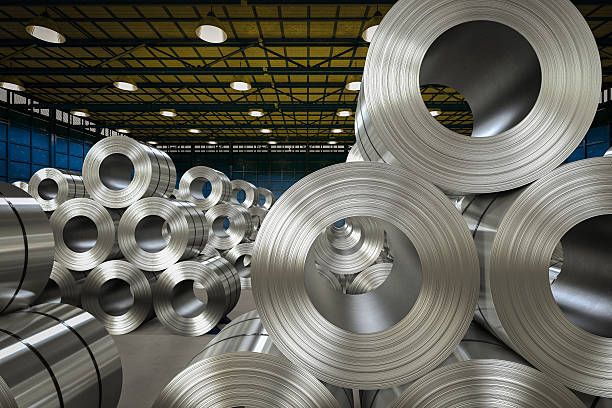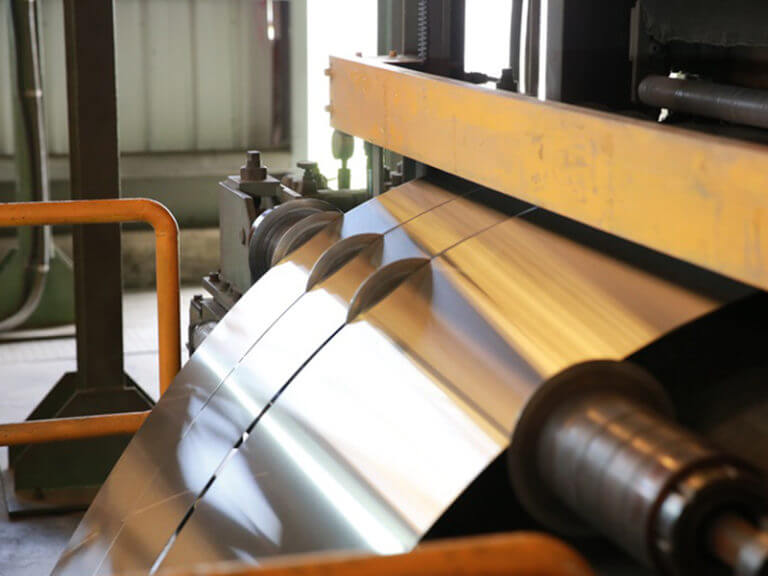Table of Contents

How to Choose the Right Stainless Steel Strip Manufacturer: A Guide for Precision-Driven Industries
Choosing the right stainless steel strip manufacturer is a strategic decision that directly affects product quality, process efficiency, and long-term cost control. For industries like electronics, automotive, or construction, even a slight deviation in strip width or surface condition can cause production delays or quality failures. This guide aims to help B2B buyers and metal professionals understand the critical factors when sourcing 304 stainless steel strip, 430 stainless steel strip, and other narrow-precision slit materials.
Why Strip Precision Impacts the Entire Manufacturing Chain
Precision is not just a technical detail—it’s a necessity. Stainless steel strips are often further processed by stamping, welding, forming, or coating. If the slit strip is inconsistent in width, flatness, or edge quality, it can affect machine alignment, wear out dies faster, or even create defective end products.
The best manufacturers of stainless steel strips focus on:
- Tight width tolerances (±0.02mm or better)
- Uniform thickness across the coil
- Edge treatment to reduce burrs or sharpness
- Consistent surface finishes (2B, BA, polished, etc.)
Without these controls, downstream processes become unpredictable—leading to higher rejection rates and lower operational efficiency
Comparing 304 vs. 430 Stainless Steel Strip Suppliers
Not all stainless steel grades require the same level of handling. The most commonly sourced grades for strip applications include:
- 304 Stainless Steel Strip: Versatile, corrosion-resistant, and formable. Ideal for high-performance applications like kitchenware, automotive trim, and medical devices.
- 430 Stainless Steel Strip: Cost-effective and magnetic, suitable for less demanding uses such as decorative trim, household appliances, and furnace parts.
A capable manufacturer should not only supply these grades but also understand their metallurgical differences. Heat treatment, surface conditioning, and storage handling all differ between 304 and 430. Choose a partner who can advise you on the correct grade for your use case and provide mill test certificates (MTCs) for traceability.
Key Criteria to Evaluate a Stainless Steel Strip Manufacturer
Here’s what separates a true partner from a transactional vendor:
- Slitting Accuracy & Equipment: Ask about their slitters—do they maintain high-precision machines with real-time monitoring?
- Quality Assurance Systems: Look for certifications like ISO 9001, as well as inspection processes such as dimensional checks, flatness tests, and surface scans.
- Material Traceability: Can they provide full traceability from raw material to final coil? Mill origin, batch records, and heat numbers are essential.
- Customization & Flexibility: Can they handle small batch orders or provide custom edge processing (e.g., deburred, rounded, mill edge)?
- Delivery Consistency: Lead time and logistics matter. Are the coils properly packaged and protected with PVC film or wooden crates?
If a manufacturer can’t answer these questions clearly, it may be a red flag for future reliability
Why Surface Condition and Packaging Reflect Manufacturing Standards
The final surface and packaging of stainless steel strips are visual reflections of internal process discipline.
- Surface Finish: For applications that require welding, bonding, or visible aesthetics, a uniform finish is critical. Whether 2B, BA, or mirror polish, a reputable supplier ensures consistency throughout the coil.
- Packaging: Poor packaging can damage edges or introduce corrosion during shipping. Look for packaging practices like rust-proof paper wrapping, coil separators, reinforced cores, and stretch film seals.
Inconsistent packaging usually signals poor attention to detail in other areas as well.
Building a Long-Term Relationship with the Right Supplier
Your ideal stainless steel strip manufacturer should offer more than just coils—they should offer peace of mind. They should be transparent, provide technical support, and continuously improve their services. Whether you are ordering 304 stainless steel strip for precision stamping or 430 stainless steel strip for mass production, trust and communication are as important as product specs.
At Genn-Hann Stainless Steel, we understand the pressure B2B buyers face when selecting a metal supplier. That’s why we have built our processes around precision, consistency, and partnership. Our in-house slitting equipment, strict QC protocols, and knowledgeable team ensure you get stainless steel strips that meet the highest industry standards. We’re not just a vendor—we aim to be the supplier you have been looking for.
Conclusion: Precision + Partnership = Sustainable Growth
Sourcing stainless steel strips should never be a gamble. With the right manufacturer, you gain not only high-quality materials but also technical expertise and reliable support. By focusing on precision, surface finish, traceability, and delivery performance, you will be in a stronger position to streamline production and grow your business.
Ready to upgrade your stainless steel supply chain? Evaluate your current supplier using the guide above—and if you are looking for a partner who combines technical knowledge with reliability, Genn-Hann Stainless Steel is ready to support your success.
👉 For more details, visit our dedicated page:https://www.ghinox.com/product/stainless-steel-strip/
References
- International Stainless Steel Forum (ISSF)
- ASTM International (ASTM A240, A480)
- JIS G4305 (Cold-rolled stainless steel plate, sheet and strip)
- EN 10088 (European Stainless Steel Standards)
- CNS (Taiwan National Standards)
- AISI (American Iron and Steel Institute)
FAQ
Q1: What are stainless steel strips?
A1: Stainless steel strips are narrow, slit coils made from stainless steel sheets or coils. They are available in various thicknesses (0.1mm–3.0mm) and widths (as narrow as 4mm), commonly used in electronics, automotive, and precision industries.
Q2: What grades of stainless steel strips are available?
A2: The most popular grades include 304, 316L, 304L, 430, 439, and 301. Each grade offers different levels of corrosion resistance, strength, and formability depending on the application.
Q3: What is the difference between stainless steel strips and stainless steel coils?
A3: Stainless steel strips are slit from coils into narrower widths, often with tighter dimensional tolerances, making them suitable for precision applications. Coils are generally wider and used in bulk manufacturing.
Q4: Can stainless steel strips be customized?
A4: Yes. Genn-Hann Stainless Steel provides custom slitting, edge finishing, and protective film coating, ensuring strips match specific industry requirements.
Q5: What are the common applications of stainless steel strips?
A5: Stainless steel strips are widely used in electronics, automotive parts, springs, medical devices, kitchen utensils, and architectural components due to their strength and durability.
Q6: How fast can stainless steel strips be delivered?
A6: With large stock and advanced slitting machines, Genn-Hann ensures fast turnaround and global delivery via truck, sea, or air freight.


